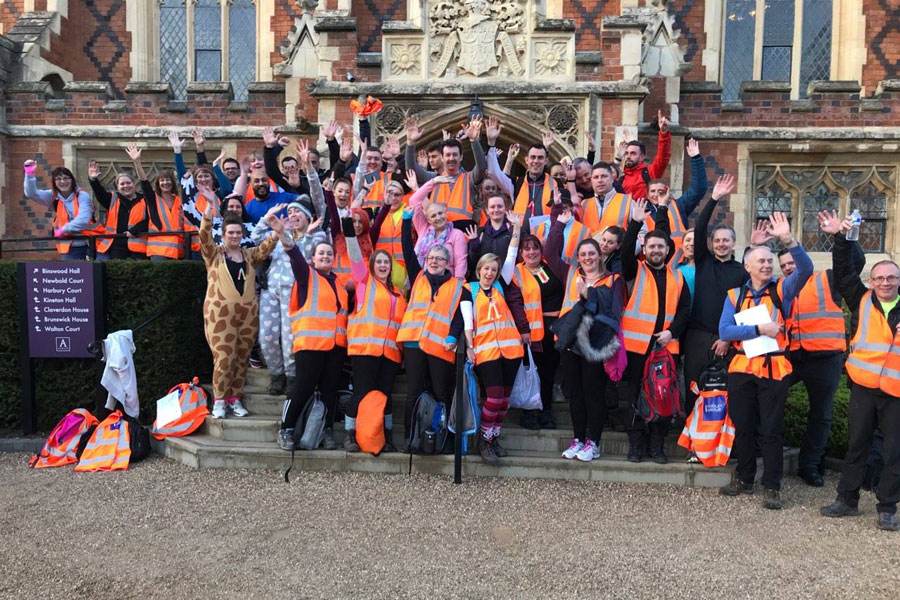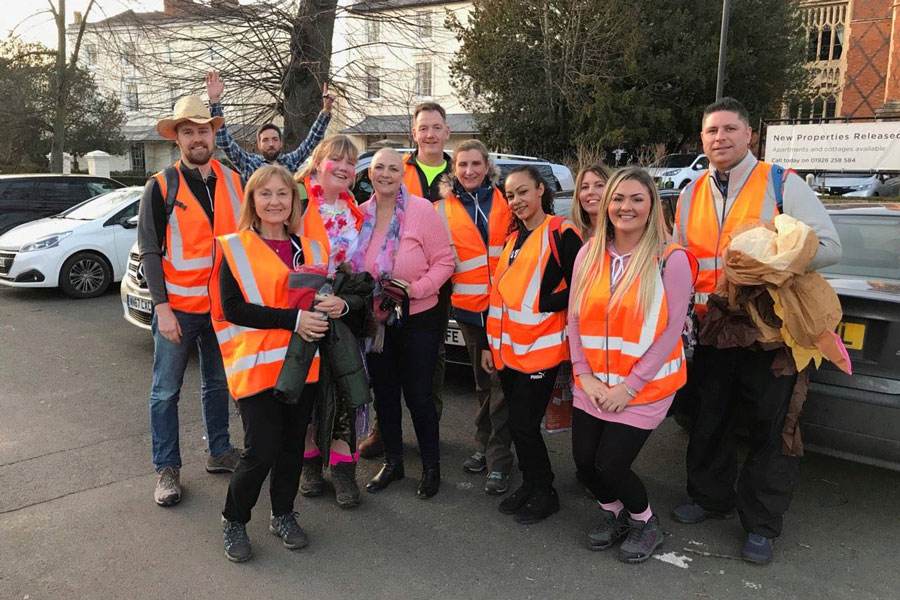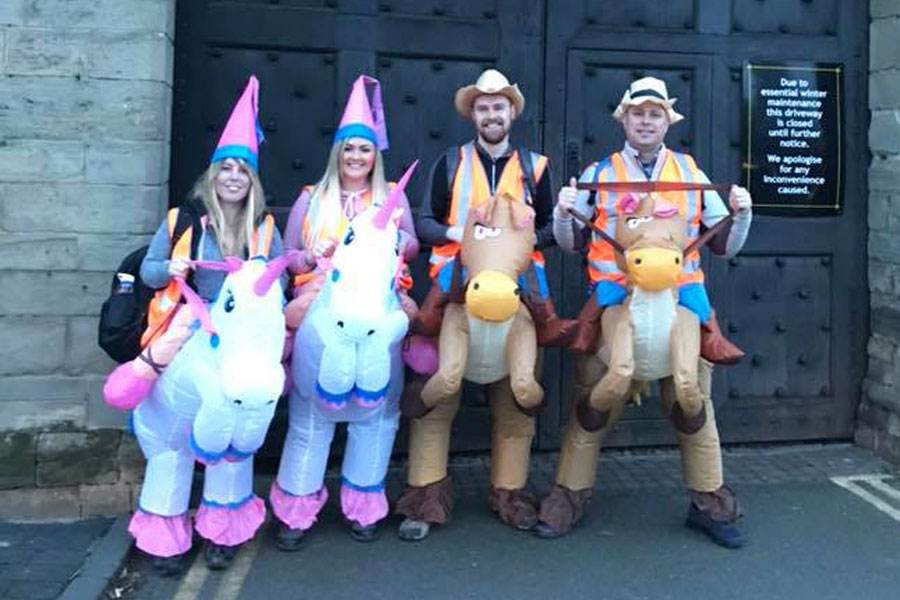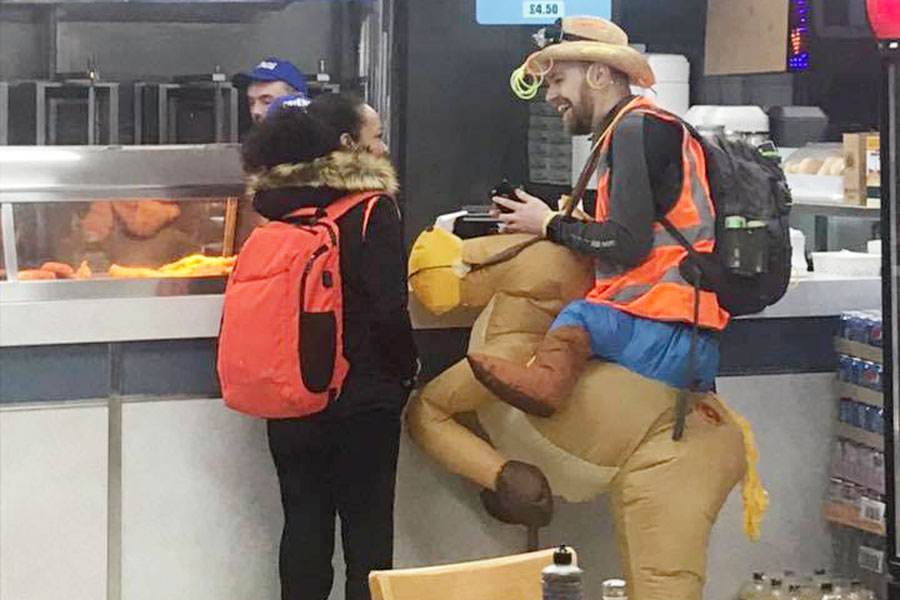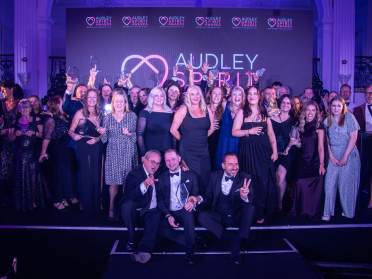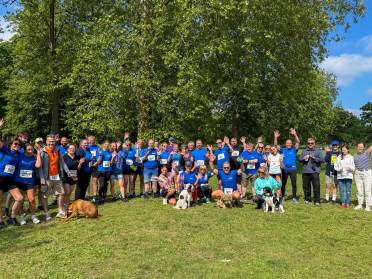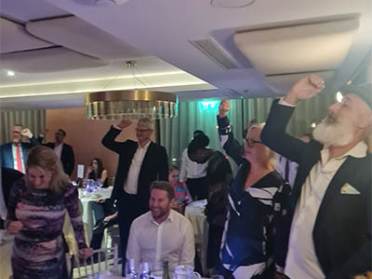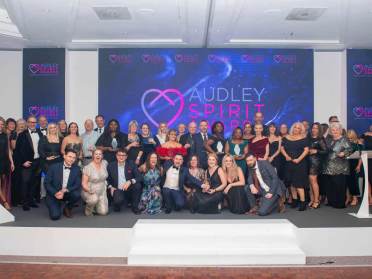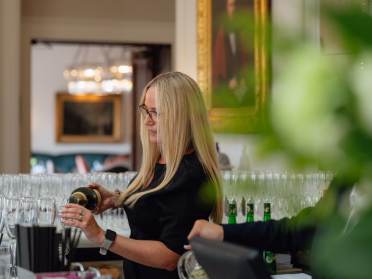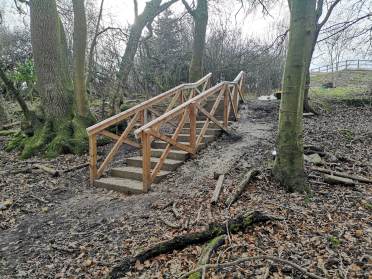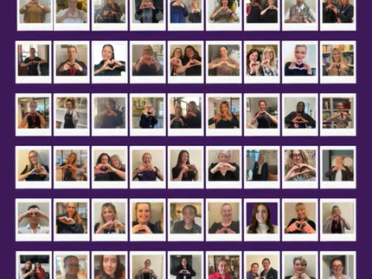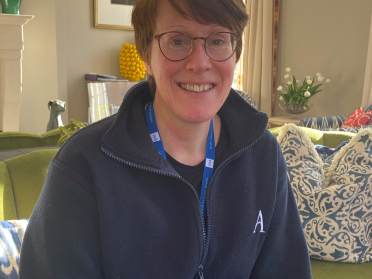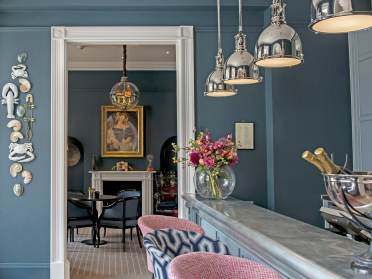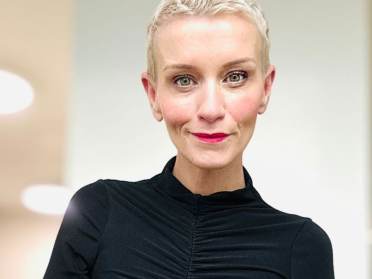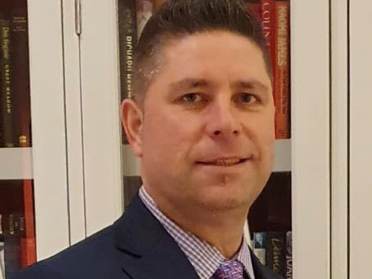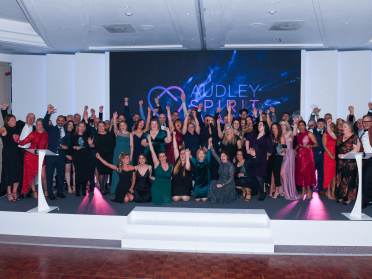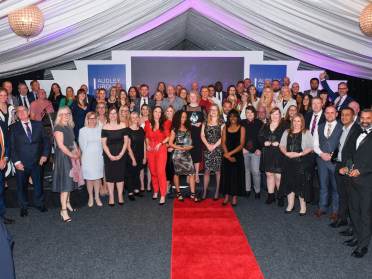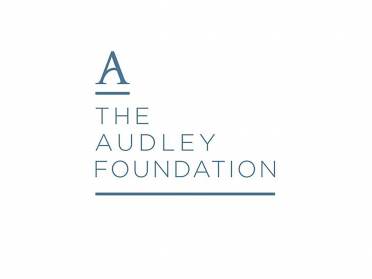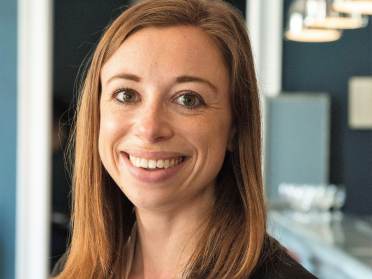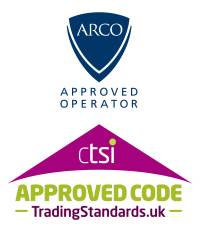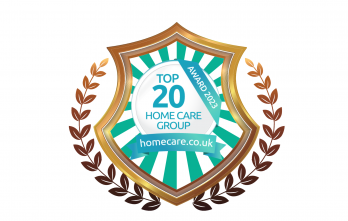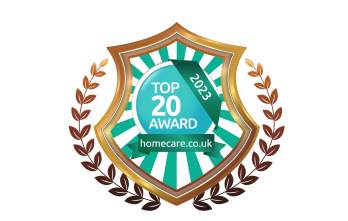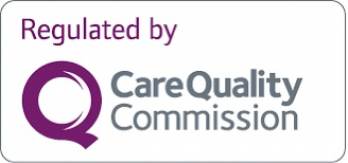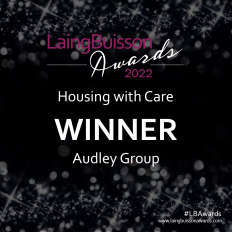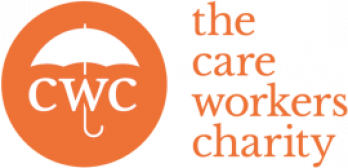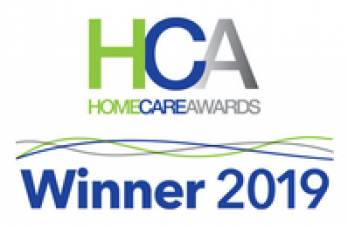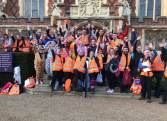
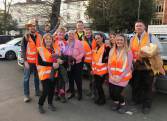

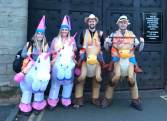
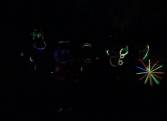

***UPDATE 15th March: We are delighted to announce that we exceeded the target and have so far raised £9,000 (and still counting...)***
This evening, a 60 strong team have embarked on a 13 mile walk, starting at Warwick Castle and trekking all the way to Audley Binswood in Leamington Spa, via Kenilworth Castle.
This is one in a series of Audley events raising vital funds for The Dove Ward, Great Western Hospitals. The Brighter Futures Charity is a cause close to our hearts at Audley as the Dove Ward supports our Care Director, Jo Lander who was suddenly, devastatingly, diagnosed with Acute Myeloid Leukamia (AML).
60 walkers, including family and friends of Jo, Audley Group directors, care, hospitality, finance, HR and sales colleagues, all set off across fields, verges and all manner of terrain, armed with torches and their positive spirits. Jo was there to wave them off and wave them back.
Paul Morgan, Audley Group Managing Director is walking with colleagues and dear friends this evening;
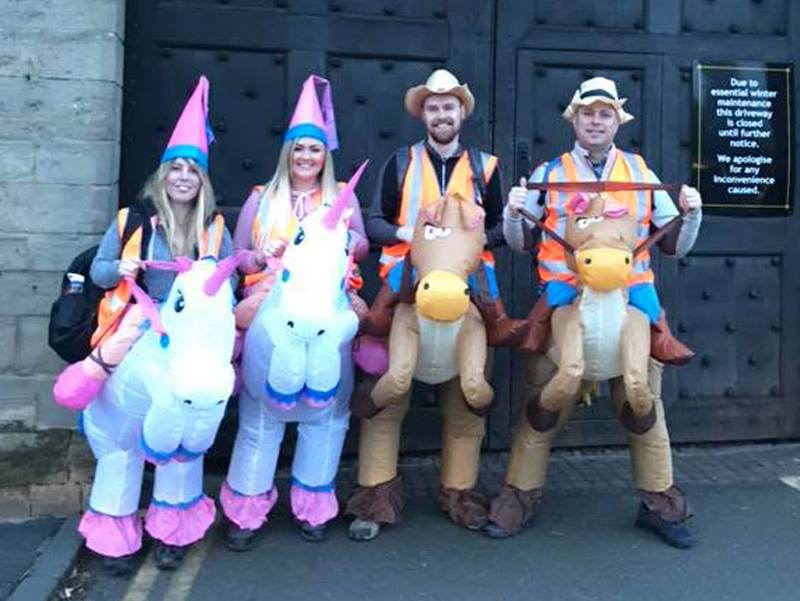
"Tonight, we have 2 bananas, cows, unicorns, a giraffe and countless wannabe 80’s fluorescent pop stars walking along the toe paths, fields and verges."
(See one such comedic walker pictured here!)
"The Audley team is like no other, and the cross village, cross department and cross function camaraderie really is evident in most events, but certainly when it comes to helping one of our own!"
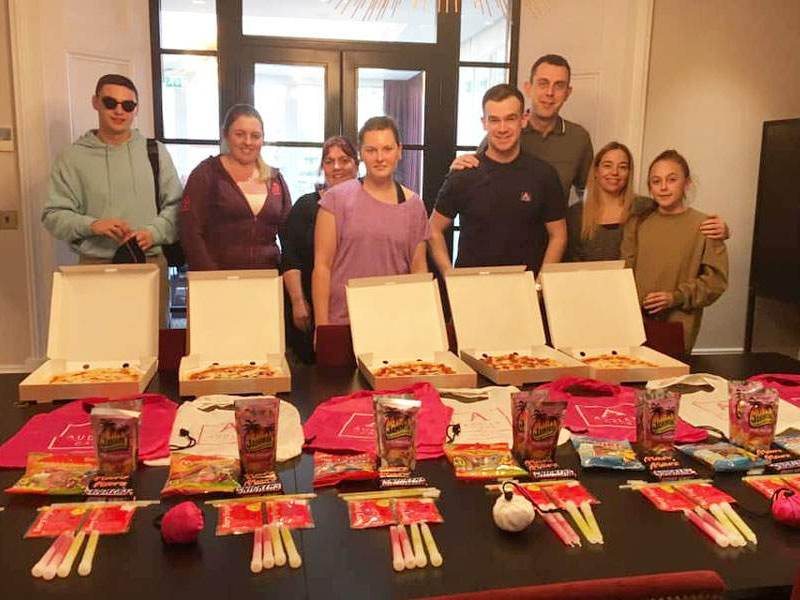
Once fuelled up on carbs, Audley walkers from all across the country set off in high spirits, spurred on by the news that earlier this evening, donations exceeded our first target of £7,000.
There's sure to be laughs, jokes, chatter, no doubt some moaning, but solidarity between the team and absolute belief in the cause.
Thank you to the walkers, and to colleagues, friends, family and Audley owners and guests who have donated. With every step you are helping to change people's lives. As Jo’s husband (Rob) says on the Just Giving page
“A contribution to help The Dove Ward, who are making such a difference to our lives.”
Thank you, most importantly, to the Dove Ward for taking such wonderful care of our Jo, whose courage is truly inspirational.
"Next year I’ll be there in my hi-vis walking with you all. Thank you from the bottom of my heart for all involved in making this fund raising possible."
#gojo #smashingthebigC #AudleyGroup
Please join us in supporting The Dove Ward, Great Western Hospital to reach their target and raise the £2.9m desperately needed for the introduction of a Radiotherapy Service.
Acute Myeloid Leukaemia (AML)
AML is a rare type of cancer. It can affect people at any age but is more common in people over 60. Around 2,600 people are diagnosed with AML each year in the UK. AML is a cancer of the white blood cells.
Normally, blood cells are made in the bone marrow in a controlled way. In people with AML, this process gets out of control and too many abnormal leukaemia cells are made. These immature cells do not develop into normal working blood cells.
In most types of AML, the leukaemia cells are immature white blood cells (blast cells). In less common types of AML, too many immature platelets or immature red blood cells are made. The immature cells fill up the bone marrow, taking up space that’s needed to make mature blood cells. This means the bone marrow is unable to make enough mature cells.
Some leukaemia cells get into the blood and circulate around the body in the bloodstream. These immature leukaemia cells don’t work properly. This leads to an increased risk of infection. It can also cause symptoms such as anaemia and bruising because fewer healthy red blood cells and platelets are being made.
How is it treated?
Induction Chemotherapy
The main aim of treatment for AML is to try to cure it. The first step is to achieve a remission. Remission is when no leukaemia cells can be found in the blood or bone marrow and normal bone marrow has developed again. The treatment given is called induction chemotherapy. Most people have two cycles of induction chemotherapy.
Consolidation Chemotherapy
The aim of consolidation chemotherapy is to get rid of any leukaemia cells that may remain after induction chemotherapy but can’t be seen. It is given to reduce the risk of the leukaemia coming back.
Donor stem cell (allogeneic) transplants?
Donor stem cell (allogeneic) transplants replace bone marrow that is not working properly with healthy stem cells. These are taken from a donor. The donor stem cells give you a new, healthy bone marrow. You will also get your donor’s immune system, which helps your body get rid of any remaining cancer or leukaemia cells.
Side effects
Without going into detail – hair loss, sickness, loss of immune system, anaemia, tiredness, mouth ulcers, change in taste!! These are all possible side effects AFTER the Chemotherapy has rendered you incapable of daily life for around two weeks.
Why are donations needed?
Whilst medical advances have come a long way in Cancer Research, there is still so far to go. The above diagnosis and treatment could span a period of 5 months, 9 months or over a year! If it’s not caught early enough, that treatment could be the majority of someone’s last year.
The advances that need to be made, primarily come from donations, gifts and sponsorship. The amount of money made available to the NHS by successive governments of all persuasions isn’t enough. The people of this country will be the people to provide the funds to save the lives of the people of this country.
"When it comes to community spirit, pulling together, showing strength in numbers and fighting for one of our own, I am proud to walk alongside such a devoted, loyal and strong Audley team."
Please join us in supporting The Dove Ward, Great Western Hospital to reach their target and raise the £2.9m desperately needed for the introduction of a Radiotherapy Service.

